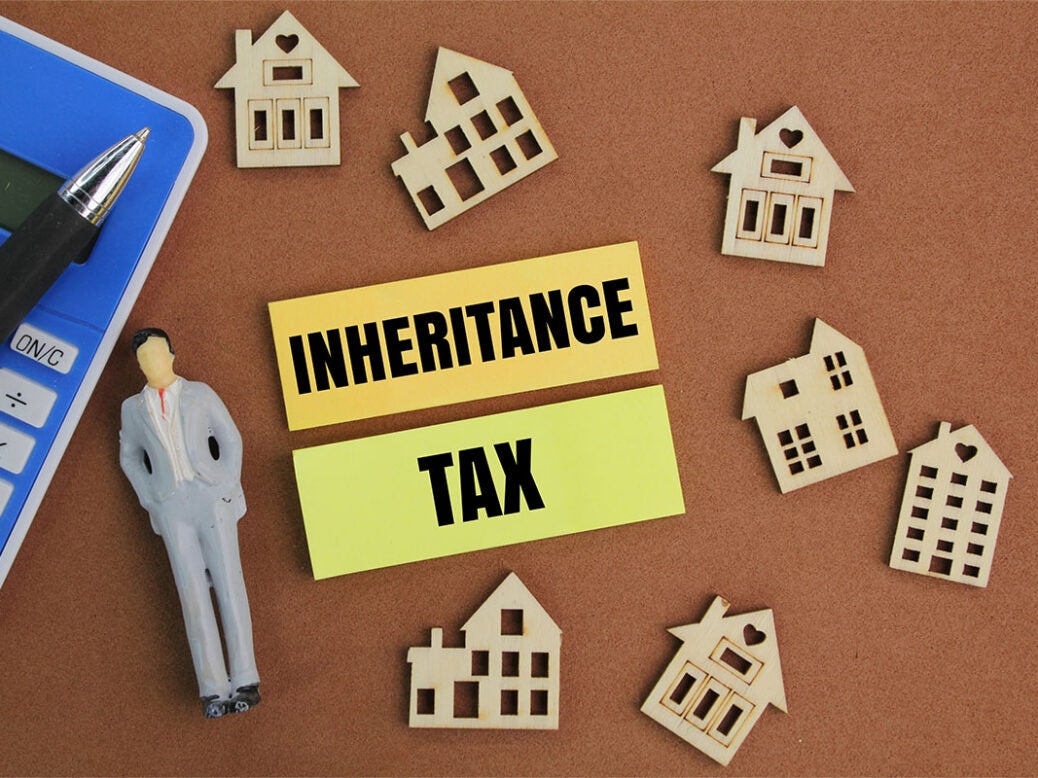
Inheritance Tax (IHT) is a tax paid on the estate of someone who has died. A notoriously complicated subject, it can often be challenging and time-consuming for HNWs to ensure that they are tax-efficient whilst remaining compliant with regulations in different jurisdictions.
[See also: The best accountants and tax advisers]
HNWs often engage with tax advisers on estate and succession planning, to ensure the smooth handover of their funds between generations.
Julie Man, a tax partner in the private client team at law firm Russell-Cooke, tells Spear’s the number of UK deaths triggering an IHT bill is rising. ‘The general expectation this will continue means expert financial planning remains crucial.’
Man explains: ‘With even the youngest baby boomers now hitting their sixties and seventies, the great transfer of wealth we’ve seen in recent years is only set to continue and intensify. Many older and wealthier individuals are increasingly focused on making lifetime gifts to the next generation and otherwise passing on assets earlier in the hope of mitigating the IHT payable on their deaths.’
According to HMRC, IHT tax receipts for the second quarter of 2024 rose to £2.1 billion, up £83 million on the same period last year. However, this only accounts for a total of 4 per cent of UK estates.
In the 2023-24 tax year, IHT receipts taken in by the taxman reached a record-breaking £7.5 billion.
[See also: Why the Great Wealth Transfer will be a dangerous time for global capitalism]
How does inheritance tax currently work?
IHT begins to apply for estates worth over £325,000, although if everything above this limit is left to a spouse, civil partner, charity or community amateur sports club then no tax is due.
Through leaving a family home to children or grandchildren, those planning their estates can also increase the tax-free threshold to £500,000.
[See also: Acceptance in Lieu: when offsetting inheritance tax is a work of art]
On assets held in the estate above this threshold, the standard inheritance tax rate is 40 per cent, though this can be reduced to 36 per cent by leaving 10 per cent or more of the net value of the estate to charity.
There are a raft of situations under which these basic rules do not apply, the most famous of which is, the ‘seven-year rule’. No tax is payable on any ‘direct gifts’ made to others at least seven years before death – with the tax payable on gifts reducing over this seven-year timeframe.
Despite not actively raising the rates on IHT or moving the thresholds, the concept of ‘fiscal drag’ has meant that the government is still able to boast increased revenues from the tax, thanks to the greater number of people becoming eligible to pay IHT on their estates. Rising house prices, asset values and inflation have continued to drag more UK taxpayers’ estates over the threshold.
Tax relief on estates
Business Property Relief (BPR) and Agricultural Property Relief (APR) are reliefs which can exempt the value of assets, either completely or partly, from an IHT charge. Both are currently uncapped, meaning that there is no limit on the value of the assets that can be protected using BPR.
[See also: Best landed estate lawyers 2024]
APR has risen in prominence in recent years, with more landed estates able to use the relief as part of environmentally-friendly farming and energy projects, according to Forsters partner Henry Cecil.
He tells Spear’s: ‘The recent expansion in the scope of Agricultural Property Relief, which now includes environmental land management schemes, is a step in the right direction for landed estate owners to have confidence to enter into natural capital markets.’
[See also: Five factors shaping the future of landed estates]
There is some speculation, however, that both of these reliefs will be subject to a review, with rumours emerging of a £500,000 per person cap, a figure suggested in a pre-election analysis by the Institute for Fiscal Studies on how to raise an extra £2.4 billion in IHT.
Man adds: ‘We await to see the government’s next move on whether they will be tempted to restrict these reliefs – for example by removing the BPR for AIM shares – in an attempt to raise more revenue to fund public spending.’
What is Labour's inheritance tax policy?

As with other fiscal policies in the 2024 manifesto, including on carried interest and the non-dom regime, Labour’s campaign was unclear on the specifics of their revenue-raising plans.
IHT was conspicuously absent from the list of taxes which Rachel Reeves has pledged not to raise, fuelling rumours that, alongside capital gains tax (CGT), the Autumn Budget will bring changes.
[See also: What is carried interest and how will Labour’s plans affect private equity executives?]
Currently, tax thresholds have been frozen by the Treasury until 2028, bands which Man says have ‘failed to keep up with inflation.’ This, she says, has allowed ‘the Treasury to tap into more family assets through the payment of IHT.’
She adds: ‘The current [£325,000] band has remained unchanged for more than a decade since 2009. The residence nil rate band, provided the relevant restrictive criteria are met, can provide an additional £175,000 to the nil rate band to a total of £500,000 per person.’
IHT for non-doms
A recent policy paper has indicated that Labour intends to change the way non-UK assets held in an excluded property trusts are taxed.
[See also: Government confirms crackdown on non-doms and taxation of worldwide assets]
It reads: ‘The government will end the use of Excluded Property Trusts to keep assets out of the scope of IHT. The government intends to change the way IHT is charged on non-UK assets which are held in such trusts, so that everyone who is in scope of UK IHT pays their taxes here.’
[See also: Where are the new non-dom hubs? Advisers reveal leading destinations after Labour win]
Non-doms will also be subject to full UK inheritance tax depending on how long they have been a UK resident. According to recent advice from private client firm BDO, ‘the test for whether overseas assets are within the scope of IHT will be whether a person has been UK resident for 10 tax years prior to the year of the chargeable event.’
How does UK tax policy compare to its competitors?
The majority of UK estates will never be eligible for inheritance tax, given these fall below the £325,000 threshold.
In Belgium, by contrast, around half of estates qualify for IHT, according to data from the OECD.
There is also a significant difference between the UK and most of the world regarding how IHT is applied. Only in the UK, the US and Denmark is the tax applied on the estate of the deceased. In most of the world, the tax falls on the recipients of the estate.
Several OECD countries, including Australia, Canada and Norway, do not charge IHT at all. In the US, around $13.5 million can be given to the next generation without any inheritance tax – though this includes all gifts given over a lifetime until the point of death. In the UK, meanwhile, lifetime gifts are unlimited as long as these fall seven years before death.
While the UK’s headline 40 per cent tax rate is high compared to other countries, the various reliefs that can apply make it more generous.
With APR and BPR, the exemptions on inheriting a family home, private pensions and the foreign properties owned by non-doms – along with the fact that most estates are either below the £325,000 threshold or only marginally above – it is believed the UK’s effective inheritance tax rate sits below 15 per cent.






